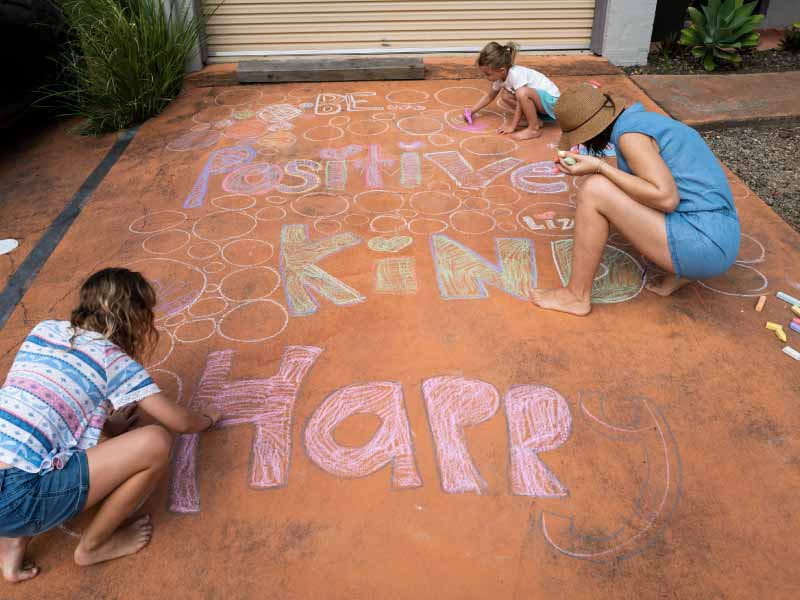In these tough times, focus on resilience
By Michael Precker, American Heart Association News

There's no resilience gene to help us deal with adversity. Experts say it's a skill to foster, a muscle to pump up.
Six months into the twin calamities of a pandemic and a tough economy, this may be a good time for a resilience workout.
Resilience is the ability to withstand, bounce back and grow in the face of stressors and changing demands. "For a long time, people believed resilience was kind of a trait, something you have or you don't," said Vanessa Downing, a psychologist in Wilmington, Delaware. "Now we know it really is much more a set of skills that can be taught and learned."
Downing, who worked for many years to help heart patients and caregivers become more resilient, now directs the ChristianaCare Center for WorkLife Wellbeing, part of Delaware's largest health care system. As colleagues have struggled to cope with COVID-19, she said, "We have really doubled down on the importance of understanding what resilience really means, and what it takes to create lasting resilience. It's a huge issue, especially at a time when there's so much facing people, whether they work in health care or not."
Dr. Abby Rosenberg, an associate professor at the University of Washington School of Medicine in Seattle, agreed.
"The time you really need to dig deep and activate your own resilience is when life seems hard," said Rosenberg, a pediatric oncologist at Seattle Children's Hospital. She specializes in promoting resilience among young patients with serious illness and their families.
"It's the process of harnessing the resources we need to get through that tough time and maintain our well-being. Resilience gives you the ability to say, 'Yes, it's hard, and this is how I'm going to get through it.'"
The benefits are not just psychological. Resilience helps to lower stress, and chronic stress is linked to health consequences that include high blood pressure, depression and heart disease.
A study published last year in the Journal of the American Heart Association indicated that African Americans living in neighborhoods more conducive to resilience – specifically, neighborhoods with better aesthetic quality, healthy food availability and a lack of violence – had less cardiovascular disease than their counterparts with the same level of cardiovascular risk factors who lived in other areas.
A 2018 study published in Psychological Science found people who reported higher levels of lingering negative feelings from daily stressors had more chronic conditions almost a decade later.
So, how do we become more resilient?
Take care of yourself
"That means ensuring our own basic needs are met," Downing said. "Things like getting enough sleep, trying to eat nutritious meals and making sure our social connections are there even when we have to be physically distant. That may require a lot more work than in our pre-COVID way of living."
And with so many people now working from home, it's important to set healthy work boundaries to prevent overworking and burnout. Maintain a regular work schedule and allow time for lunch and breaks.
Reflect on problems you've overcome before
"What have you done in the past when things were hard?" Rosenberg said. "That can help people think about which particular resources they need now, and to be able to ask for help."
Focus on gratitude
"Our brains are hard-wired to notice the negative, and that's what sticks with us more," Downing said. "You have to take proactive steps to balance the scales."
To put that into practice, she said, "At the end of each day, record one or two good things that happened. Take a moment to open a window and simply let the air brush over your skin. Find a way to notice the moment rather than rushing through it to worry about the future."
Don't go it alone
"Some people think about resilience as a Lone Ranger, pull-yourself-up-by-your-bootstraps kind of mindset," Downing said. "What really helps us get through challenging times is having people in our life to help us meet our needs."
Practice
"It's easier to say and harder to do," Rosenberg said. "But it's like any skill. If you want to learn to ride a bike, you have to practice. And you may fall down a lot. You have to pick yourself up and keep trying."
Hang in there
Part of the resilience journey is sometimes just getting through the day, Rosenberg said. "The longer this (pandemic) drags on, the more the uncertainty can weigh us down. But it doesn't mean we're not going to get through it."
Editor's note: Because of the rapidly evolving events surrounding the coronavirus, the facts and advice presented in this story may have changed since publication. Visit Heart.org for the latest coverage, and check with the Centers for Disease Control and Prevention and local health officials for the most recent guidance.
If you have questions or comments about this story, please email [email protected].





